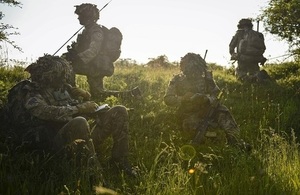News story: Yorkshire design studio secures distribution deal in Australia
Yorkshire Wolds-based stationery and design studio Alison Hardcastle is celebrating international success, securing a lucrative distribution deal in Australia following the New York Stationery Show at the Javitts Centre, New York.
The company also exports to countries ranging from Canada to the UAE, with support from the Department for International Trade (DIT).
Employing 2 people locally, the home-grown business produces greetings cards, paper goods and prints. Established in 2005, it now sells its products around the world, in countries ranging from the US to Australia, and from the Netherlands to Switzerland. International sales now account for over 30% of its turnover.
Alison Hardcastle’s products are also stocked extensively across the UK in retailers including Oliver Bonas, Southbank Centre, Waterstones, Paperchase and the Design Museum. The company is planning to increase its international presence, looking to Germany, Netherlands, France and Belgium.
The business started working with DIT in 2013, receiving ongoing market advice and research to help it overcome exporting challenges. It went to New York on a DIT-led trade mission in 2014, sending its first international order in 2015 after a successful decade of trading across the UK.
It keeps all production in the UK, using only local businesses and services where possible. Local printers are used and all products are finished, packed and despatched from its Yorkshire studio.
Founder Alison Hardcastle said:
I know that exporting will make my business more sustainable in the long-term, and I have plans to reach a variety of new markets in the near future.
Initially, the thought of exporting seemed quite daunting. However, my advice to any small business thinking of taking its first international step is to be brave and bold. Exporting is nowhere near as scary as I initially thought, and once you get the hang of it, it’s not hugely different to doing business in the UK. The key is being as organised and proactive as possible. If we can do it, you can too!
Mark Robson, Head of Yorkshire and the Humber at the Department for International Trade, said:
Alison Hardcastle’s products showcase the best of British creativity. Her colourful, clever and eye-catching cards and prints have proved incredibly popular in the UK, and we’re delighted to see that they are gaining traction in countries across the world.
We know that exporting can seem daunting, however the rewards far outweigh the challenges. There is support available for any company, of any size, in Yorkshire and the Humber. Whether a business has 2 or 200 hundred staff, our team of International Trade Advisers can provide the help needed to get its product to international markets.
Firms looking for support should visit great.gov.uk which has information on live export opportunities and includes general information on exporting and events.
